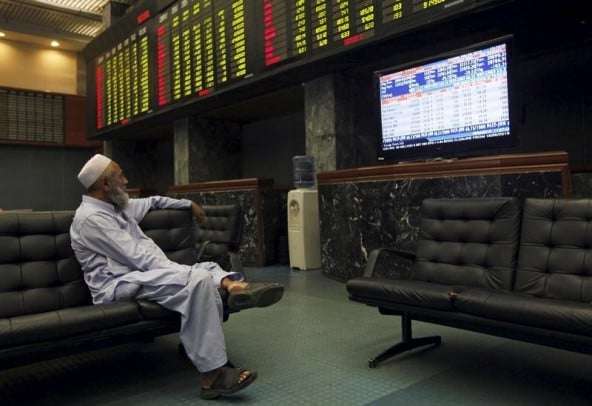Is PSX on Its Way to MSCI Emerging Market Status?
|
Getting your Trinity Audio player ready...
|
The Pakistan Stock Exchange (PSX) is witnessing a surge in investor attention and market activity, as analysts, investors, and policymakers closely monitor its progress. While some skeptics dismiss the rally as speculative or manipulated, a deeper analysis reveals solid financial reasons behind the market’s recent uptick. One of the most significant discussions surrounding the PSX’s future is whether it will be reclassified into the MSCI Emerging Market (EM) Index. If this happens, it could mark a major milestone for Pakistan’s financial markets, with profound implications for foreign investment and the country’s economic standing.
A Brief History of Pakistan’s MSCI Status
From Emerging Market to Frontier Market and Back
Pakistan’s relationship with the MSCI Emerging Market Index has been tumultuous. The country was part of the MSCI Emerging Market Index from 1994 to 2007. However, it was removed in 2008 due to political instability, capital control measures, and a market collapse fueled by excessive leverage. Despite these setbacks, Pakistan managed to re-enter the MSCI Emerging Market category in 2017, only to be downgraded once again in 2021. The reasons for this downgrade included currency depreciation and the tightening of monetary policies, which diminished the USD valuations of Pakistani companies.
Why MSCI Status Matters
The MSCI Emerging Market Index is one of the most influential benchmarks for investors, guiding the allocation of capital in emerging economies. Inclusion in this index significantly enhances a country’s market visibility, boosts foreign investment, and provides access to capital from global institutional investors. For Pakistan, reclassification to the MSCI Emerging Market Index could revive investor confidence and attract substantial foreign capital into its financial markets.
What Does the MSCI Emerging Market Status Require?
The MSCI Emerging Market status is not easily attained. The classification process is based on several stringent criteria, evaluated during the MSCI Annual Market Classification Review. The key factors considered are quantitative (market capitalization, free float market capitalization, and annualized traded value ratio) as well as qualitative (macroeconomic stability, institutional framework, and investor protections).
Key Requirements for MSCI Emerging Market Status
To qualify for inclusion in the MSCI Emerging Market Index, a country needs to meet the following requirements:
- Market Capitalization of Companies: A minimum of three companies must meet the required market capitalization threshold of $1.26 billion, with a free float-based market capitalization of $630 million.
- Annualized Traded Value Ratio (ATVR): The country must demonstrate a 15% annualized traded value ratio, ensuring that companies are frequently traded on the exchange.
- Investor-Friendly Environment: The country must avoid capital controls and ensure a stable political and economic environment that fosters investor confidence.
Pakistan’s Progress: Crossing the Thresholds
As of this week, Pakistan has made significant strides in meeting these criteria. Three of its leading companies – Fauji Fertilizer, Mari Petroleum, and United Bank Limited (UBL) – have surpassed the required threshold of $630 million in free float market capitalization. Fauji Fertilizer, Mari Petroleum, and UBL have demonstrated values of $1 billion, $650 million, and $665 million, respectively.
Additionally, eight companies on the PSX have exceeded the market capitalization threshold of $1.26 billion, including Oil and Gas Development Company Limited (OGDCL), Mari Petroleum, Pakistan Petroleum, Fauji Fertilizer, UBL, Meezan Bank, Colgate Palmolive, and Lucky Cement. These companies collectively demonstrate a strong market capitalization, with values ranging from $1.3 billion to $3.3 billion.
What is Needed to Secure MSCI EM Status?
The next crucial step for Pakistan is to ensure that at least three companies maintain the quantitative criteria and reflect the 15% annualized traded value ratio (ATVR) through increased trading activity. This would signal to MSCI that Pakistan is worthy of being reclassified to Emerging Market status. The MSCI review process is expected to take place over the next 6 to 18 months, potentially by mid-2025, at which point Pakistan’s prospects will be assessed.
The Qualitative Factors at Play
While meeting the quantitative criteria is essential, Pakistan must also demonstrate stability and growth in its institutional and economic environment. Several factors have helped improve the country’s standing in this regard:
- Avoidance of Capital Controls: Pakistan has refrained from imposing capital controls on foreign investors, which is a crucial factor for maintaining investor confidence.
- Stable Institutional Framework: Pakistan’s financial system has shown resilience, and the operational framework for businesses has improved, which helps boost investor sentiment.
- Political and Economic Stability: Despite challenges, Pakistan has managed to maintain a relative degree of political stability, and the reversal of interest rate hikes has improved business conditions.
These qualitative factors help ensure that the Pakistan Stock Exchange is ready for reclassification into the MSCI Emerging Market Index.
The Implications of MSCI Reclassification for Pakistan
Attracting Foreign Investment
One of the most significant benefits of MSCI Emerging Market status is the potential for increased foreign investment. As more international funds are allocated to emerging markets, Pakistan will become a more attractive destination for capital. This could result in greater liquidity on the PSX, improved market stability, and the ability for Pakistani companies to raise capital on international markets.
Boosting Investor Confidence
MSCI’s reclassification would signal to global investors that Pakistan’s financial markets have matured and are ready for greater levels of foreign capital. It would enhance investor confidence in the long-term viability of the market and promote further structural reforms in the economy.
Improved Market Liquidity and Stability
As foreign investment flows into the market, the overall liquidity of the PSX is likely to improve. This, in turn, would help stabilize the market, reduce volatility, and encourage further participation from both local and international investors.
How Policymakers Can Support MSCI Reclassification
Promoting Investor Confidence
Policymakers must continue working towards enhancing investor confidence by addressing political uncertainty and implementing policies that foster a conducive investment environment. This includes ensuring transparent regulations, improving governance, and creating a robust legal framework that protects investor rights.
Ensuring Stability in the Currency and Economy
Given that currency depreciation and economic instability were factors behind Pakistan’s previous downgrade, maintaining currency stability and a favorable macroeconomic environment is critical to securing MSCI reclassification.
FAQs
What is the MSCI Emerging Market Index?
The MSCI Emerging Market Index is a global benchmark that tracks the performance of companies from emerging market economies. Inclusion in this index can significantly boost a country’s stock market by attracting international investors.
How does MSCI classify markets?
MSCI classifies markets into three categories: Developed Market, Emerging Market, and Frontier Market. These classifications are based on factors such as market size, liquidity, economic development, and the regulatory environment.
What are the benefits of being included in the MSCI Emerging Market Index?
Inclusion in the MSCI Emerging Market Index attracts foreign investment, boosts market liquidity, and enhances investor confidence. It also signals that the country’s financial markets are maturing and ready for greater levels of capital.
How close is Pakistan to re-entering the MSCI Emerging Market Index?
Pakistan is making significant progress towards re-entering the MSCI Emerging Market Index. It has met many of the required criteria, including market capitalization thresholds for several companies, and is focusing on maintaining these levels while improving trading volume.
What can policymakers do to help Pakistan’s case for MSCI reclassification?
Policymakers should work to maintain economic stability, ensure transparency in the regulatory environment, and continue implementing policies that encourage foreign investment. This will help strengthen the case for reclassification.
ALSO READ
https://skipper.pk/2024/12/16/tax-trap-top-1-income-earners/




